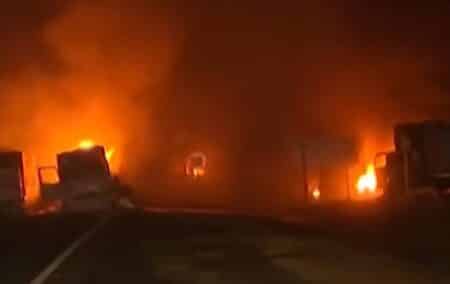South Africa’s largest crude oil refinery in Kwa-Zulu Natal (KZN) has been forced to close due to the ongoing violence and unrest.
Businesstech News reported that South African Petroleum Refineries (Sapref) announced a force majeure and temporary closure. The refinery in KZN is South Africa’s largest and represents 35% of the country’s Africa’s refining capacity. The refinery is a joint venture between Shell Refining SA and BP Southern Africa.
In a statement released on Tuesday, Sapref said that it had no choice but to shut down its refinery.
‘As a result of the (unrest), Sapref hereby declares the occurrence of an event of force majeure, excusing Sapref from performing under the agreement,” said Sapref.
‘Due to the civil unrest in the country and disruption of supply routes in and out of KwaZulu-Natal, suppliers of materials critical to Sapref operations communicated the suspension of deliveries to the refinery due to safety concerns for their staff and damages to their vehicles on the roads.’
The Automobile Association (AA) warned South Africa could face a shortage of fuel. While there have been reports of some filling stations in KZN and Gauteng running out of fuel, AA spokesperson Layton Beard said there was no need for panic as there was still enough fuel available.
According to Bloomberg, the ongoing looting and unrest is expected to disrupt many other parts of the supply chain in South Africa, with food supplies coming under threat.
Across Durban, which was at the centre of the unrest, long queues formed outside the few supermarkets and other food stores that were open yesterday, though it was reported that basic necessities such as bread and milk were already in short supply.
Tongaat Hulett has suspended its milling and refining operations outside Durban. Chief Executive Officer Gavin Hudson said: ‘Food is going to be a problem because shops haven’t been open for three days and many with bulk storage have been looted.’
According to the Consumer Goods Council of South Africa, looters have stolen food, electronic goods and medical supplies from at least 800 stores, with the loss to retailers running to an estimated R5 billion so far.
The cost to logistics firms is at least R300 million and counting with more than 35 trucks said to be destroyed, according to estimates by the Road Freight Association.

